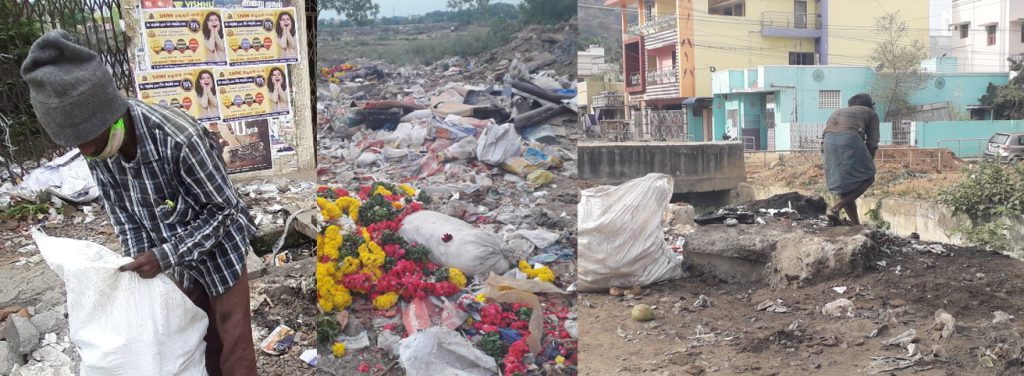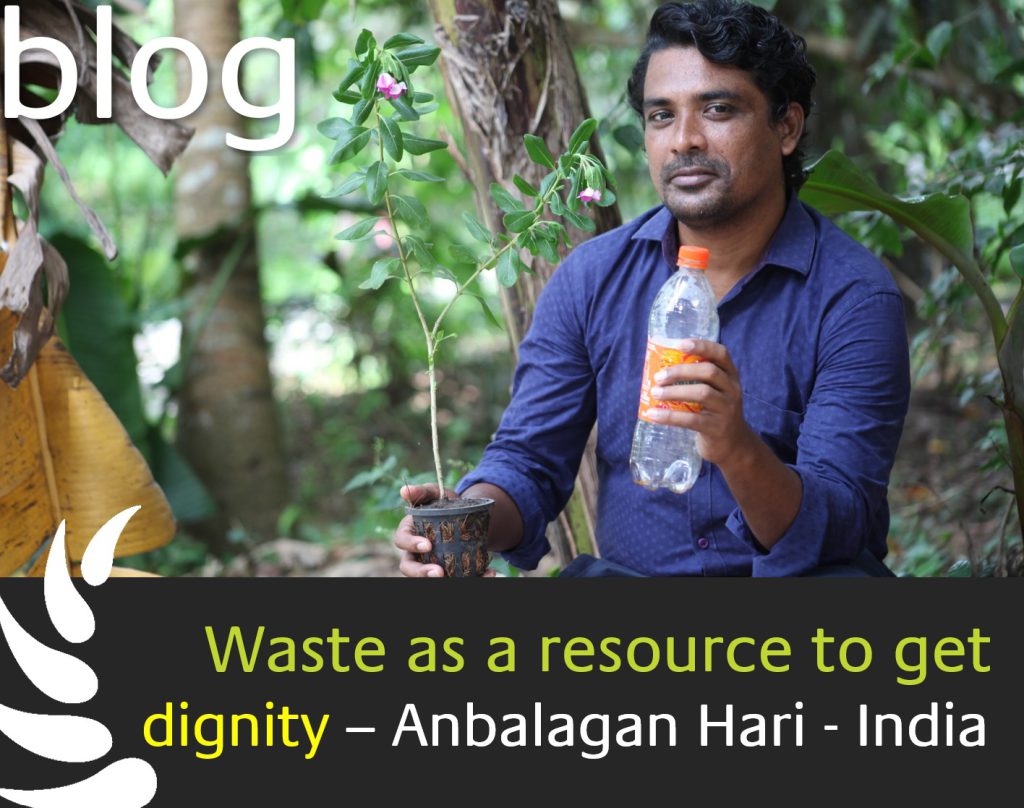Summary
waste as a resource to get dignity
Anbalagan Hari (36) India Effective waste management system / environmental protection
Anbalagan comes from a very humble family that lacked many resources, hence he grew up doing many odd jobs to stay in school. In between studies he worked in a Leather products manufactoring company, where he witnessed the journey of waste from producer to consumer and the role waste pickers or rag pickers play in the system. His vision is to ensure a clean &green environment and to realize a more effective waste management system that also improves the welfare of the rag-picking community. In the long run, he also wants to work on reduction of waste on the consumer level.
waste as a resource to get dignity
What comes to mind if you think of a rag picker? A man, dirty, poorly clothed, roaming around to search for waste material in a pile of trash? However, in reality, most rag-pickers are women or young children who are hard-working to feed their families.
Perumugai is a small village with less than a thousand inhabitants, it is situated in Tamil Nadu, close to Vellore at the foot of a hill that has no greenery. This is the place I grew up in. My parents were daily wage workers, who despite their hard work found it difficult to make ends meet.
Due to financial constraints, after finishing higher secondary school, I was forced to work in a leather factory with a salary of 750 Rs. per month. I had to cut sheep leather into small pieces that were used to make gloves. The work was tough, my hands got calluses, I faced respiration issues, and my legs were strained by standing the whole day. This was just a regular day working at the leather factory when I was 16 years old. The working conditions sometimes let emotions come in the way of us workers, which regularly resulted in willingly damaging and wasting parts of the leather. After two years of work, using my savings and employee benefits, I was able to return to college and finish my graduation.
But again, a lack of funds stopped my post-graduate education. However, I rejoined working in the leather factory, now as an HR assistant, and on the side, I did a master’s through distance learning. In my new role as supervisor, I criticized my former colleagues who still were damaging and wasting leather. Yet, what was a waste for our company, was a resource for others. Outsiders would buy these leather scraps to make key chains, wristwatch strips, and other small-sized items. This was the birth of my passion about waste management. With my new master’s degree, I started looking to switch my career, but my efforts only got rejections as my study done through distance education was not valued.
Again, I used my savings to start another study, and for this, I did field research about how employee behavior impacts waste generation. I contacted several leather companies to get their approval. The employers said that they liked it, yet they did not allow an outsider to speak with their employees. So, this was a dead end. Eventually, the only option was to shift the target audience from employees to consumers. The study revealed insight into the attitude of people towards consumption.

In 2013, I wanted to get a job in the field of waste management. I applied to an institute that had an excellent waste management system. They, however, employed me to promote higher education projects. As part of their scholarship program, in 2018, I visited a student to verify the socio-economic status of his family. Meeting him influenced me a lot. He lost his dad, and his mother did rag-picking to provide for her family. He got the scholarship and upon graduation, got a job in the IT sector. His life significantly changed through this support, but his peers are still living a vulnerable standard of life and continue rag-picking.
From all the stages in my life, I have closely connected with the lives of rag pickers even if I am not one myself. But as I am from the same communal background, I have experienced all the circumstances of disadvantage and pain that they are facing in their life. Even today, this particular community forms 99 percent of the workforce to clean the environment in both formal and informal sectors.
I cannot create a wonder to change the life of all of them. But I believe that waste, when managed properly is a resource that plays an important role to create a sustainable future. Promoting new ways of waste management could offer livelihood opportunities for many. Therefore, I want to create dignified employment opportunities leading to a cleaner and more sustainable society.

